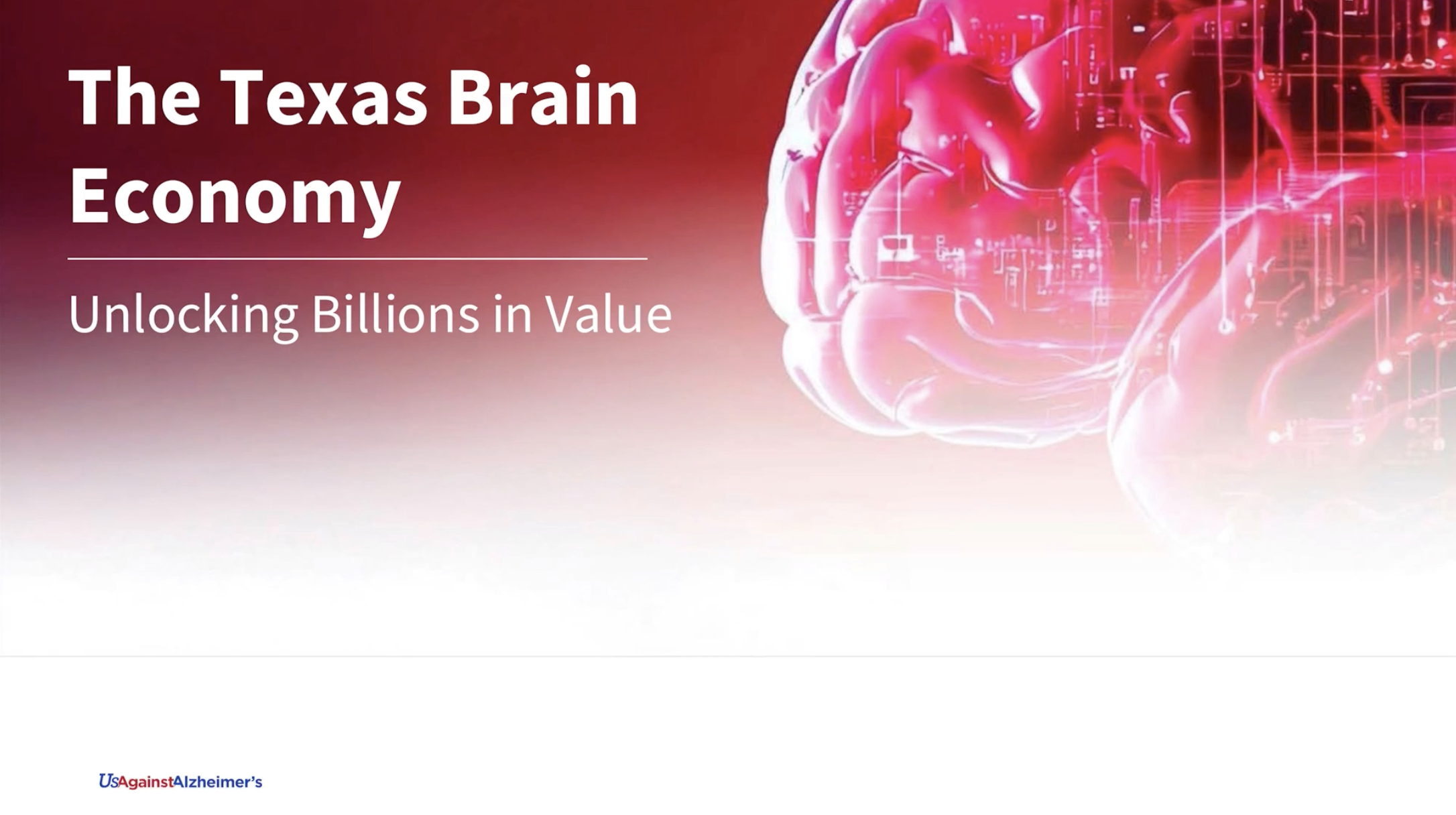The Texas Brain Economy: Unlocking Billions in Value
Experts clearly define brain health, brain capital, and the brain economy, highlighting the significant global and regional burden of brain health conditions and lost productivity. It emphasizes the urgent need for accelerated, collective action, particularly in Texas, to overcome fragmentation, improve data, increase investment, and develop a prioritized roadmap for a positive brain economy transition. Houston is identified as an ideal hub to lead these initiatives due to its strong medical and partnership infrastructure.
Discussants:
Lucy Pérez, PhD, Senior Partner, McKinsey & Company
Thomas Seitz, PhD, Senior Partner, McKinsey & Company
Thomas Seitz and Lucy Perez from McKinsey Health Institute defined key terms: brain health as encompassing mental, neurological, and substance use disorders, brain capital as the combination of brain health and cognitive, social, and emotional skills, and the brain economy as an economic system fueled by healthy brains and brain capital. They highlighted the significant global health burden of brain health conditions, accounting for 18% of the global health burden and resulting in 12 billion days of lost productivity annually, equating to over a trillion dollars in economic output. Notably, the US has the highest burden of brain health conditions among high-income countries. In Texas alone, the brain economy represents a $260 billion GDP contribution.
The discussion further delved into the local data for Texas, revealing critical issues such as 4 in 10 students being chronically absent, Texas ranking 46th in providing youth mental health support, and sectors like oil, gas, mining, and construction having suicide rates twice the national average. Texas also ranks fourth in the country for Alzheimer's cases. The speakers emphasized the need for accelerated, collective action from all ecosystem players to address these challenges and unlock the brain economy's potential. They outlined four critical success factors: avoiding fragmentation of efforts, improving data accessibility and consistency, increasing investment in brain health and brain skills, and defining a prioritized roadmap toward a positive brain economy transition. Houston was presented as a unique place to lead this initiative due to its world-class medical center, strong public-private partnerships, and diverse talent pool.
Develop a prioritized roadmap for brain health initiatives that spans the entire lifespan, from early childhood interventions to support for aging populations.
Increase investment in efforts to grow brain capital, including leveraging opportunities such as the newly established Dementia Prevention Research Institute of Texas
Improve data collection and accessibility to inform brain capital strategies, foster innovation, and attract startups.
Promote collaboration across public, private, and social sectors to avoid fragmentation of efforts and ensure a unified approach to brain health.
Emphasize the importance of brain health and brain skills in the workplace by understanding risk and resilience factors that impact cognitive performance and linking them to value drivers for employers.
Integrate brain capital considerations into workforce development strategies, focusing on skills like creative thinking, adaptability, and resilience, which are increasingly critical in the age of AI.
Leverage Houston's existing strengths, such as the Texas Medical Center and its robust public-private partnerships, to spearhead brain economy initiatives.
Engage in collaborations bringing in public and private sector stakeholders from around the globe, including the World Economic Forum's 2025 Brain Economy Action Forum, to share best practices and contribute to a global strategic roadmap.
Next Steps:
Actively participate in the 2025 Brain Economy Action Forum and complete the associated survey to contribute ideas and best practices for the strategic roadmap to be unveiled in Davos next January.
Increase awareness of the viability and impact of brain health investments, particularly in education, given the significant social return on investment (more than 10 times) as well as positive financial returns.
Work to reduce the prejudice and discrimination associated with brain health conditions to encourage more individuals to seek the support and treatment they need.
Encourage organizations to invest thoughtfully in the brain capital of their employees to unlock economic value and improve workforce well-being.
Continue to collect and analyze data on brain health trends in Texas to monitor progress and adjust interventions as needed.
Highlight the potential impact of a regional brain economy transition and the opportunity to catalyze investment and mobilize resources from the public and private sectors.

